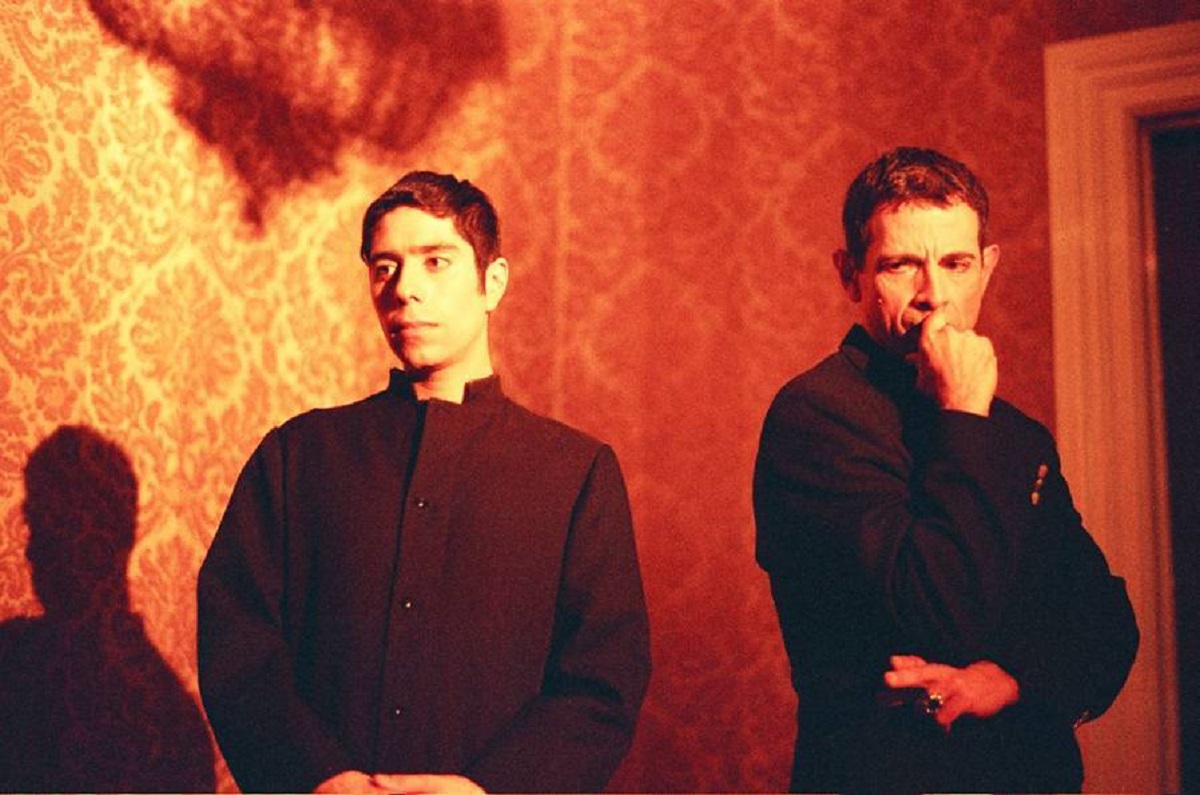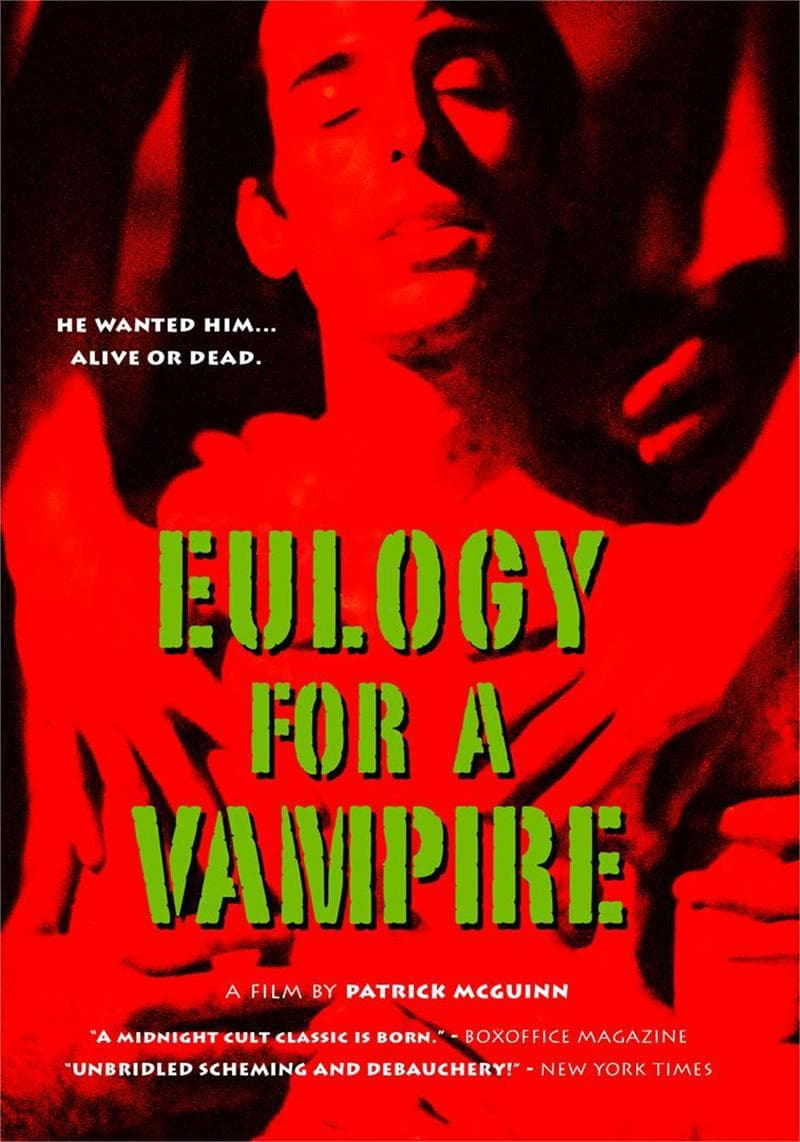USA. 2009.
Crew
Director/Producer – Patrick McGuinn, Screenplay – Andre Salas, Photography – Nickolas Dylan Rossi, Thematic Music – Christian Hawkins, Jeremy Hinsdale & Christopher Stein, Visual Effects – Jesse LeChok, Makeup Effects – Sam Kingcaid, Art Direction – Susan Morningstar & Domenic Sartisius. Production Company – Willing Suspension Films.
Cast
Damacio Ruiz (Brother Rafael), Angelo Tursi (Sebastian), Craig P. Lumsden (Brother Eric), Wilson Hand (Father Anthony), Nate Steinwachs (Brother Stefano), David McWeeney (Father Lars), Darin Guerrasio (Brother Matthew), Ryan G. Metzger (Florian), Sal Bardo (Young Anthony), Shawn Hollenbach (Mr. McGee)
Plot
At the Order of Pathicus monastery, the young monk Anthony does not want his love Florian to leave him and so stabs him in the woods. 25 years later and Father Anthony now heads the order. Two of the novice monks, Rafael and Eric, have been having a secret gay affair. An amnesiac stranger Sebastian is found nearby and taken in by the monks. However, Sebastian has an effect on the others, including seducing Rafael away from Eric. At the same time, the ghost of Florian appears and something starts turning the monks into vampires.
Queer Cinema – an independent cinematic movement since the 1990s, consisting of films made by gay people largely for gay audiences – has started to dabble in fantastic cinema in recent years – see efforts such as Seeing Heaven (2010) and the notorious L.A. Zombie (2010). Eulogy for a Vampire, though sold as a standard vampire film, is clearly a Queer Cinema vampire film. It came out around 2010-11 that saw a sudden spate of gay vampire films with the likes of Bite Marks (2011), Vampires: Brighter in Darkness (2011), The Brides of Sodom (2013), 1313: Boy Crazies (2011) and Vampire Boys (2011).
Director Patrick McGuinn has previously made segments of the gay anthology Boys in Love 2 (1998) and the identity-bending gay-themed Sun Kissed (2006), as well as the horror film Kill Me Tomorrow (2000). He would subsequently go onto make Leather (2013) and I, Scorpio (2014), all works of gay cinema. Equally, co-writer Andre Salas’s credits include titles like Latin Boys Go to Hell (1997).
I was interested to see what Patrick McGuinn would do with the idea of placing a vampire in a monastery, which is different if nothing else. The answer is not much. The film is surprisingly slow moving and little happens. You finish watching feeling that a film that involves vampires, murder, guilt, full-on scenes of monks buggaring one another, at one point even raping each other, and sundry whippings should have been far more interesting than it is.

Mostly, Eulogy for a Vampire seems to be a film about gay relationships and jealousies inside a monastery. The most frustrating thing about the film is Patrick McGuinn’s fuzzy, non-linear narrative (which would appear to be a characteristic directing style). Everything is very unclear – the vampire element could have been taken out without it making much difference to the story. The rest consists of vague scenes involving Father Anthony feeling guilt about the lover he killed, the lover maybe returned to life, someone occasionally killing the other monks and they then appearing to return to life.
Any explanation of what is going on seems elusive. At the end of the film, for instance, we are not even sure who the vampire is meant to be – Florian or the amnesiac Sebastian. In fact, did the title of the film not say so, it would be hard to tell from looking at Eulogy for a Vampire to tell that it was intended as a vampire film. You are never even sure why the monks are being whipped.
Moreover, I found the set up at the monastery slightly hard to swallow. All the monks seem to be having gay crushes/affairs with one another and/or are acting like prissy queens (the worst offender being David McSweeney). I am not sure if this is how Patrick McGuinn and Andre Salas believe the true state of affairs to be in the priesthood but you could easily get the impression from the film that the Catholic priesthood is made up solely of gay men who embrace the monastic, celibate life because it allows their sexuality to find its true expression.
Trailer here


